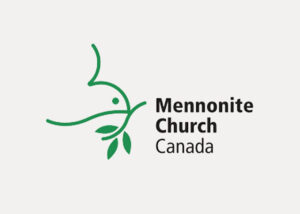In a meeting on Jan. 30, 2022, Mennonite Church Canada’s governing body, Joint Council, affirmed climate action as a nationwide ministry emphasis.
Eight days later, MC Canada published a document prepared by the executive ministers entitled, “Taking Action on Climate Change: The Eco-Mission of the Church in a Critical Time.” The document outlines six initiatives that reflect MC Canada’s “working commitments as a nationwide church.” This action followed the 2021 United Nations Climate Change Conference and the “7 Calls to Climate Action” initiative, a grassroots push by Canadian Mennonites for bold action.
More than a year after that document was published, what action has MC Canada taken?
Initiative #1: Broaden the mandate of MC Canada’s Sustainability Leadership Group.
The Sustainability Leadership Group (SLG) is appointed by Joint Council. The group now has representation from all regions except Saskatchewan. Members include Marta Bunnett Wiebe, Ian Funk, Joanne Moyer, John Reimer, Tim Wiebe-Neufeld and Andre Wiederkehr. They meet every two to three months.
Leading up to the annual MC Canada gathering in Edmonton last summer, the group set up a carbon levy so that registrants could offset greenhouse gas emissions from their travel. This generated $1,178, which included offsets related to the Edmonton gathering as well as other travel. About half the money came from MC Manitoba.
Using MC Canada’s suggested calculations, the amount contributed to the offset fund would cover 24 flights from Toronto to Edmonton.
Joint Council shifted $100,000 out of an older “church building” reserve fund into the creation care fund. The offset money also goes to this fund.
Eventually, MC Canada congregations will be able to apply to the creation care fund for grants for carbon reduction projects at their churches. MC Canada staff are currently mapping out a grant application process.
Initiative #2: Create space for our youth to engage on the climate crisis.
MC Manitoba is organizing a climate-focused gathering for youth and young adults ages 16-25 in April. Other regions are invited to send representatives.
Initiative #3: Open discernment about “simple living.”
In the February 2022 document, MC Canada leadership encouraged individuals, families, congregations and regional churches to “grapple with Jesus’ teachings” and consider how they might do things like reduce consumption, streamline their possessions and minimize use of fossil fuels.
Because this is to happen on the local level, it’s difficult to gauge progress.
In Manitoba, a grassroots group is organizing around the notion of a “More-with-Less Revival.” As an initial step, the group is inviting Manitobans to redirect their provincial “carbon tax relief” cheques ($225 for individuals, $375 for households) to Mennonite Central Committee. While not initiated by church leaders, the revival group includes three members of the MC Manitoba Climate Action Working Group.
Initiative #4: Explore divestment/investment options related to mitigating climate change.
To date, MC Canada has not produced a clear summary statement of how it is making investment choices that align with its values, and it has not focused on investing in “instruments that have a positive impact on climate change.”
Doug Klassen, MC Canada executive minister, cites changes in the church’s accounting department as the reason and adds that MC Canada still plans to do these things.
Shortly after “Taking Action on Climate Change” was published, MC Manitoba’s general accountant took over responsibility for MC Canada’s accounting from MC Eastern Canada’s financial manager, a transition that took months to organize, Klassen said.
“We’re so understaffed that just getting the day-to-day stuff done is sometimes very taxing,” he said. “It sounds lame to say we didn’t have time… [but] we didn’t anticipate a significant change in our accounting department, either.”
Klassen reported, however, that the majority of MC Canada pastors and staff have chosen pension fund portfolios that do not invest in fossil fuel projects.
After a long history with a credit union, MC Canada currently banks with TD, which invests in new coal, oil and gas developments. The church moved its business to TD because the credit union was not able to accommodate out-of-town signing authorities, which was necessary after staff downsizing.
Klassen said that when MC Canada’s treasurer is in Winnipeg for meetings in the spring, they will explore moving to a banking institution that does not invest in fossil fuel projects.
“Another significant factor for us will be the ability to send money [to Witness workers] overseas seamlessly,” he said. “That can’t falter.”
The world of investments is a complex one, Klassen said, and “there’s just no such thing as untainted money.” MC Canada wants to do the right thing, but at the same time, “It’s impossible to stay free of everything that causes us ethical concerns.”
Initiative #5: Set up a Mennonite Church Canada web page to provide . . . resources for congregations and working groups.
MC Canada has not yet created a central hub for the work of the regional and nationwide working groups. The church’s website does include resources at mennonitechurch.ca/climate-action.
Initiative #6: Commit funds to support Mennonite Church Canada’s climate actions.
MC Canada hired Sandy Plett as half-time climate action coordinator. She started on Nov. 28.
This was a specific action pushed for by the “7 Calls” group.
Funds have also been made available as per #1 above.
Reflections
Plett is struck by the different names chosen by the regional working groups related to climate. Four of the five regions have such groups, which are made up of volunteers. Eastern Canada has the “Creation Care Resource Team,” Manitoba has the “Climate Action Working Group,” Saskatchewan has the “Climate Emergency Response Team” and B.C. has the “Creation Care Task Group.”
The different names indicate different perspectives and priorities, Plett says.
“It paints a picture of the diversity of angles that people are approaching the climate crisis with,” she says. “What I also notice is a sensitivity to what language will mobilize the people in that region.”
The working groups are all less than two years old and still in formative stages, Plett says. An Alberta group is expected to be established soon.
Plett recently produced a “lay of the land” document outlining what each working group is up to.
Mark Bigland-Pritchard, a member of the “7 Calls” campaign and chair of MC Saskatchewan’s working group, says the nationwide church is making progress and he’s confident in Plett’s ability to move things forward.
Still, he wonders what things would look like today if MC Canada had taken bolder action 10 years ago. “We’re up against an emergency,” he says. “Just what we can call for in an emergency, at a time when some people recognize it’s an emergency and some people don’t, is going to be a challenge.”
He notes that the world’s poorest countries bear the brunt of climate change, and that responding to climate change is, in the end, a spiritual issue.
“How do we actually relate to the world that God has put us in and therefore to the creator?” he asks. “How do we relate to our fellow human beings who are suffering as a result of our excess?”
“[Taking climate action is] a deeply relational thing, which is so easy to lose when we’re just looking at it in terms of planned policy,” he added. “So as with all relationships, there is going to be struggle [and] there is going to be joy as well as we go into the process.”
A letter to Canadian Mennonites from Hope Mennonite Church
Dear friends and family in the Mennonite community:
We’ve got a life-threatening money problem, and we desperately need your help.
We are in a climate emergency. The science clearly says we need to draw down carbon emissions 50 percent by 2030 if we’re to have a chance at not crossing the planetary boundary of 1.5-degree warming. But since the 2016 Paris Climate Accords, the world’s biggest banks have put over $4.6 trillion toward fossil fuels. Five Canadian banks alone—RBC, Scotia, TD, BMO and CIBC—have invested over $911 billion in new coal, oil and gas developments since 2016. Imagine where we’d be if these banks had instead invested that money in clean energy.
To continue to fund new fossil fuel projects at a time like this is violence to the earth, to all of the planet’s living species, to our poorest global neighbours, and to our own communities. UN Secretary General Antonio Guterres has said fossil firms and the banks that finance them “have humanity by the throat.”
But we can stop them. A global divestment movement is rising up and calling faith communities, schools, businesses and individuals to move our money away from these banks.
Does your church bank at RBC, Scotia, TD, BMO or CIBC? Do you? We, the Justice Team at Hope Mennonite Church in Winnipeg are humbly calling on you, as we call on ourselves, to follow Jesus into the temple and “cleanse” our accounts so that we can all bank on a better future.
March 21 is an international “Move Your Money” day of action. We need churches to step up and join the life-saving work of others—to move our money, and to let the banks and the world know why we are doing so.
In December, Europe’s largest bank, HSBC, responded to this kind of pressure and announced it will stop financing new oil and gas developments.
Members of our congregation and others have moved their money from these five banks to other financial institutions. Our church and many others have chosen to bank with local credit unions. We invite you to join this movement. If you want to share your story with us or are curious to learn more, contact us at justiceteam@hopemennonite.ca. For more info on the steps you can take, check out bankingonabetterfuture.org, a beautiful website created by student groups across Canada.
In friendship,
The Justice Team of Hope Mennonite Church (Winnipeg)










Leave a Reply
You must be logged in to post a comment.